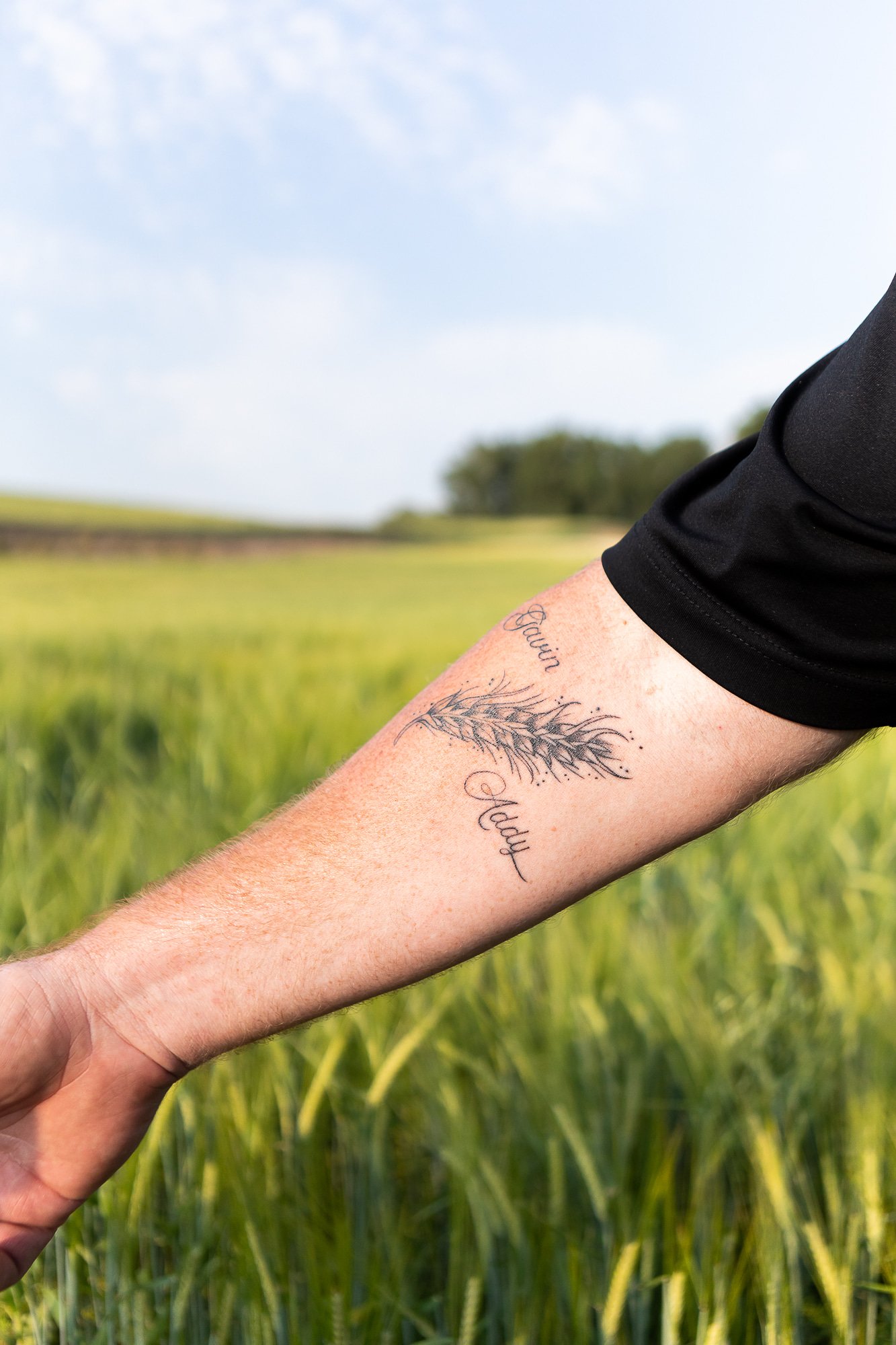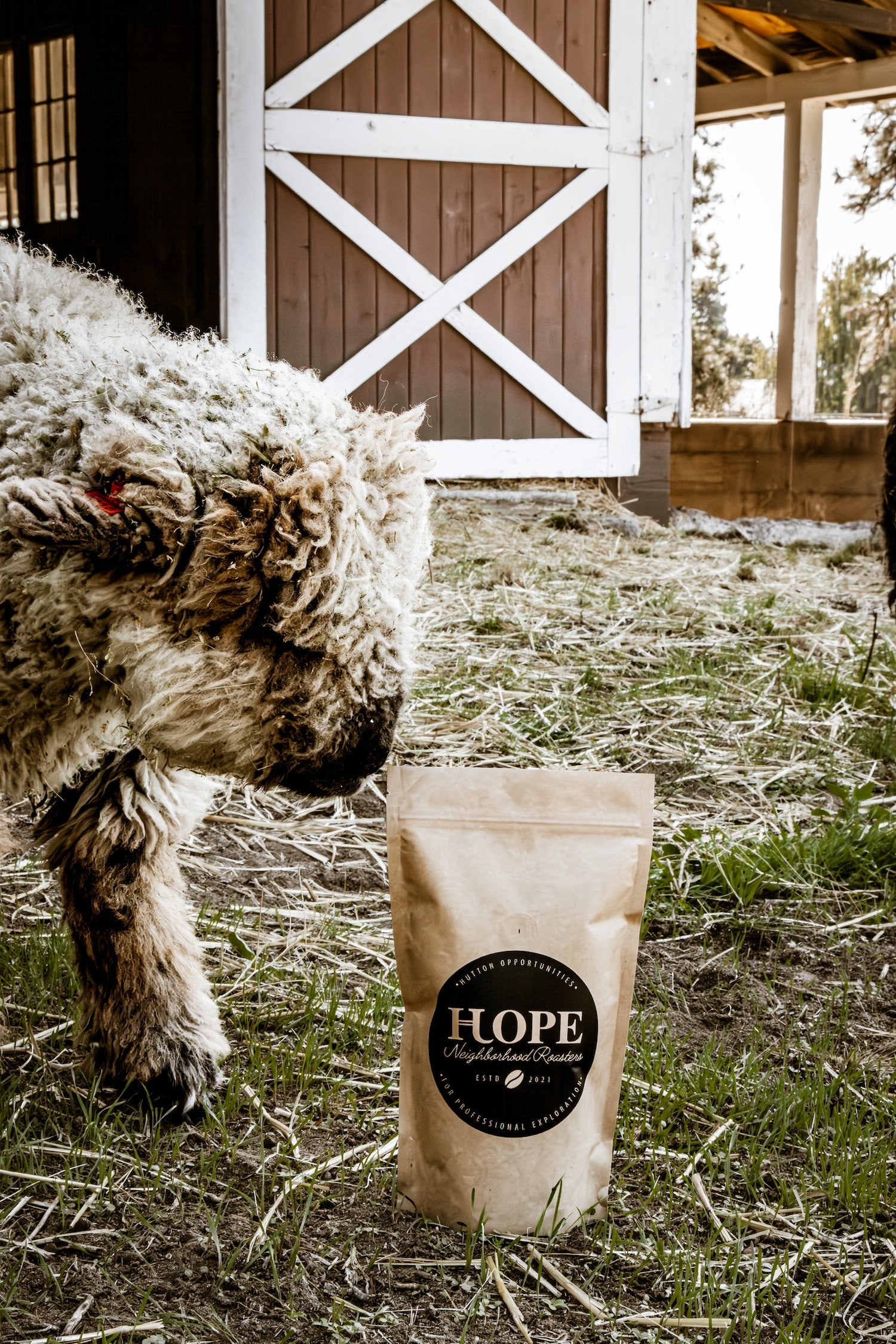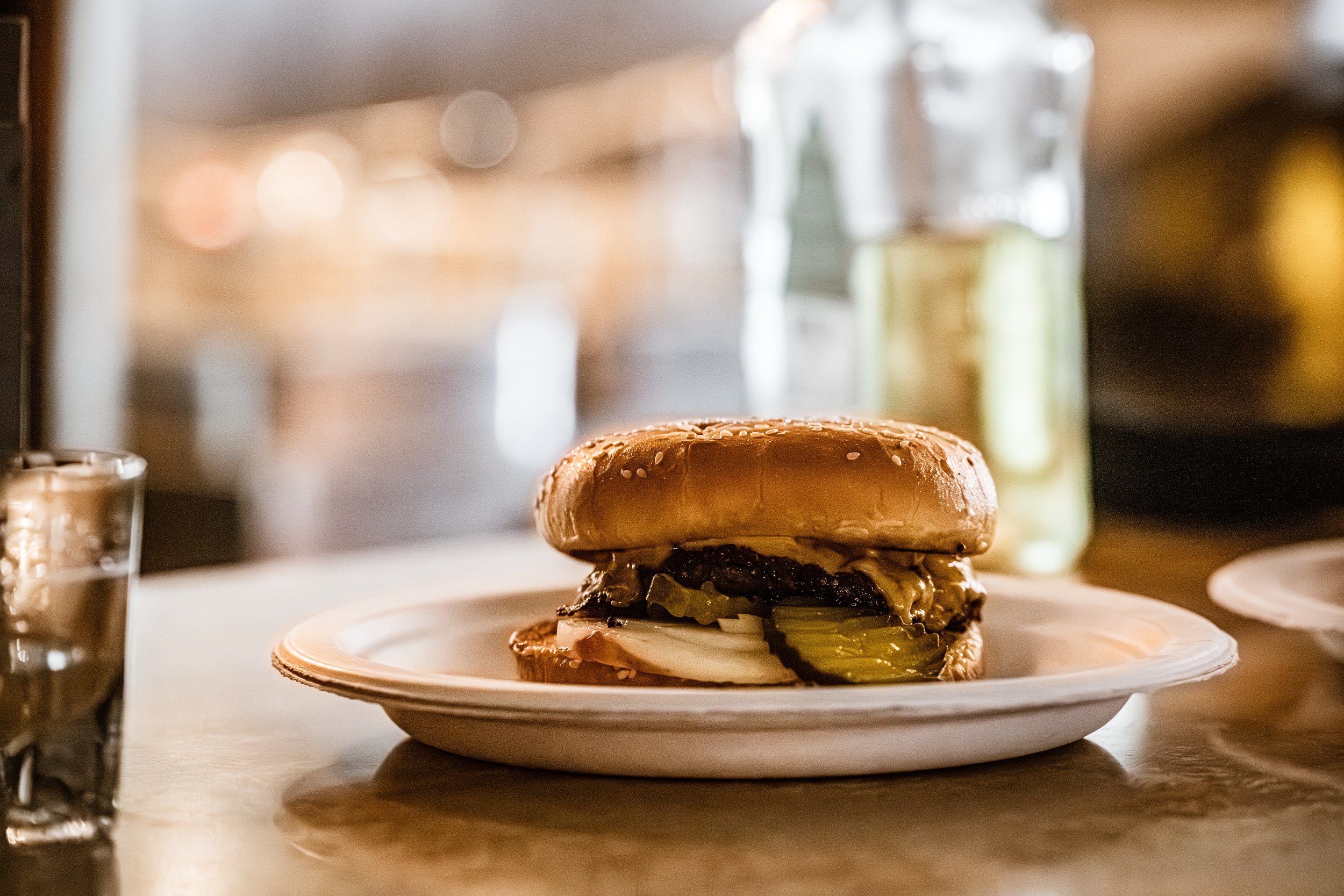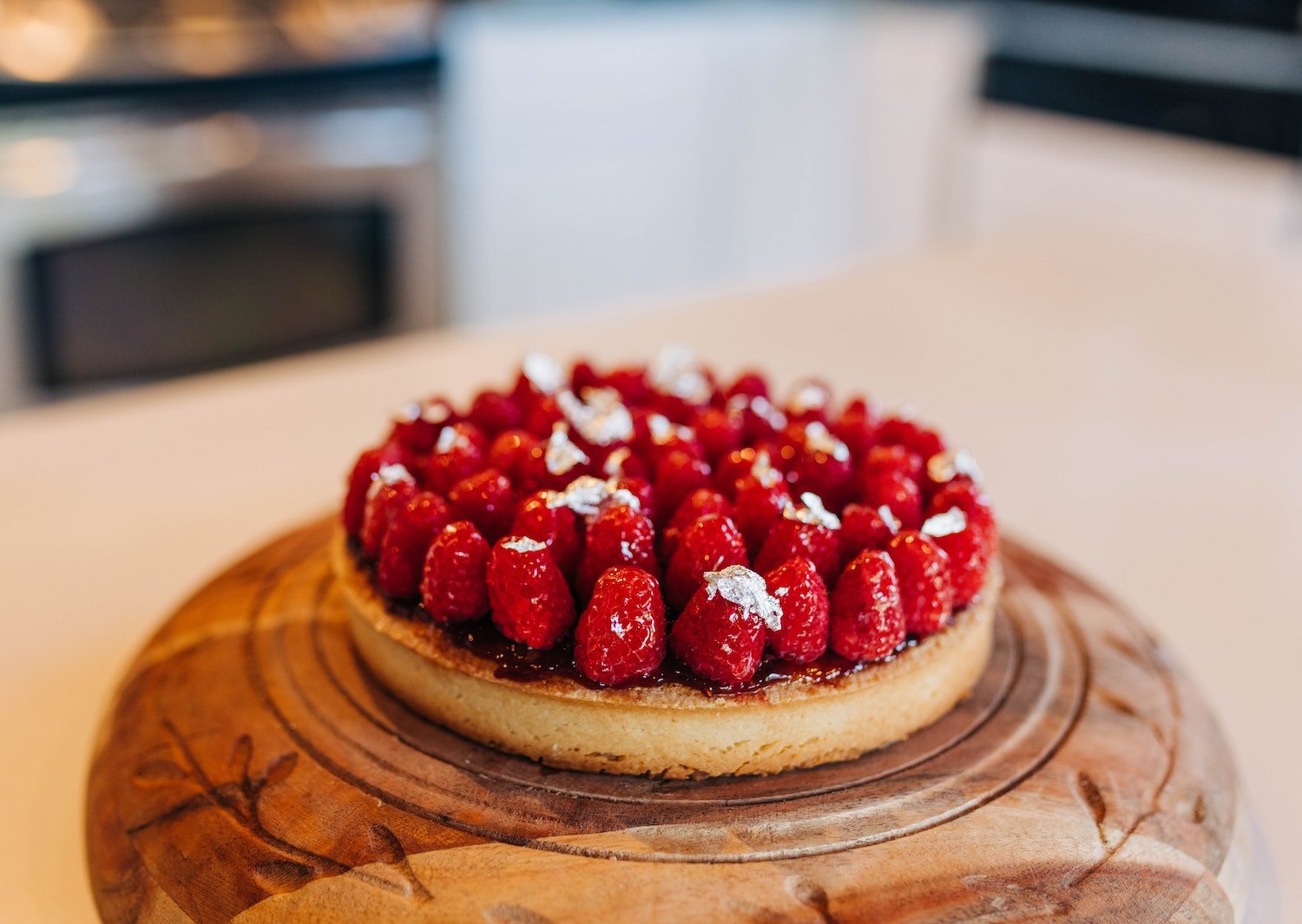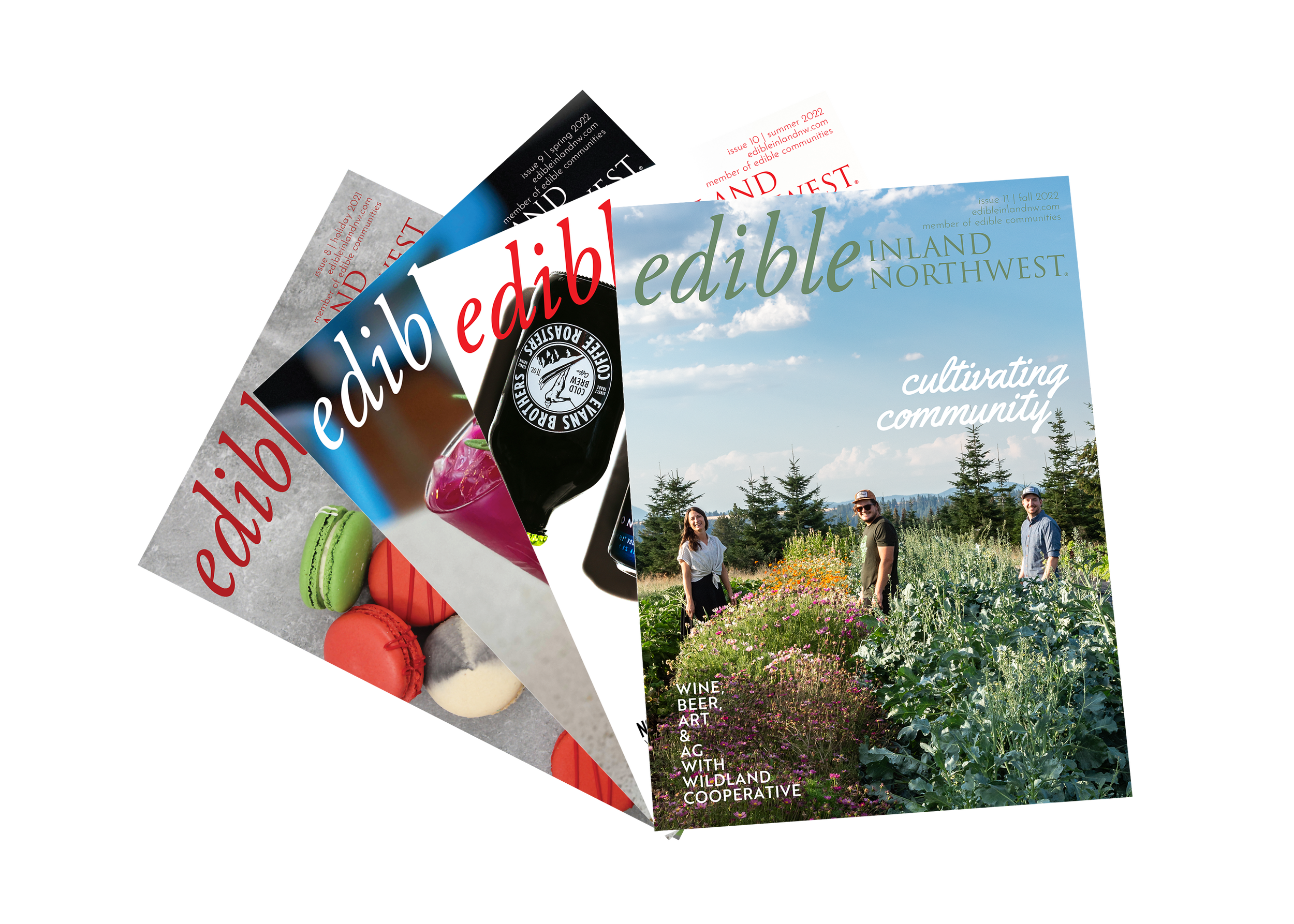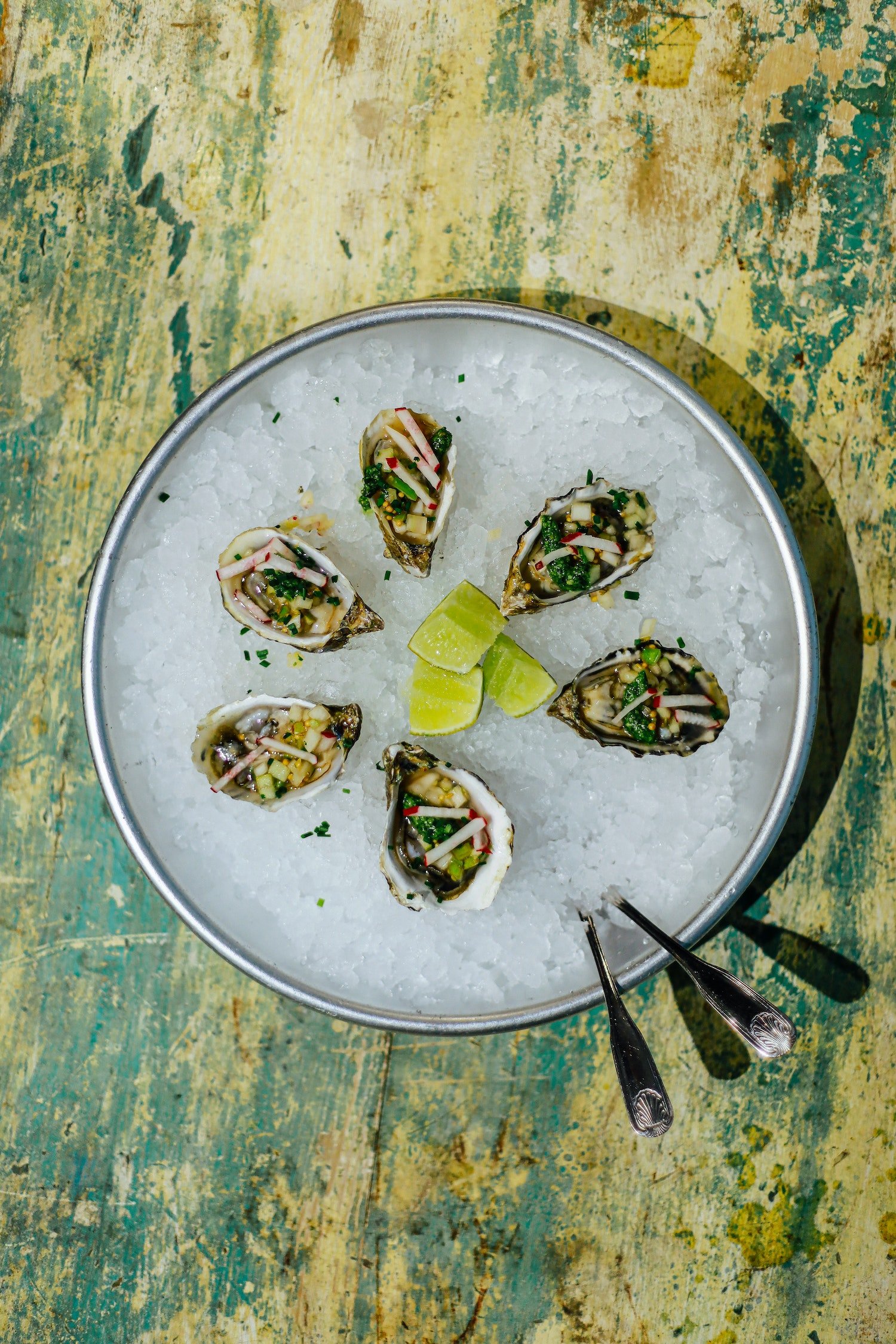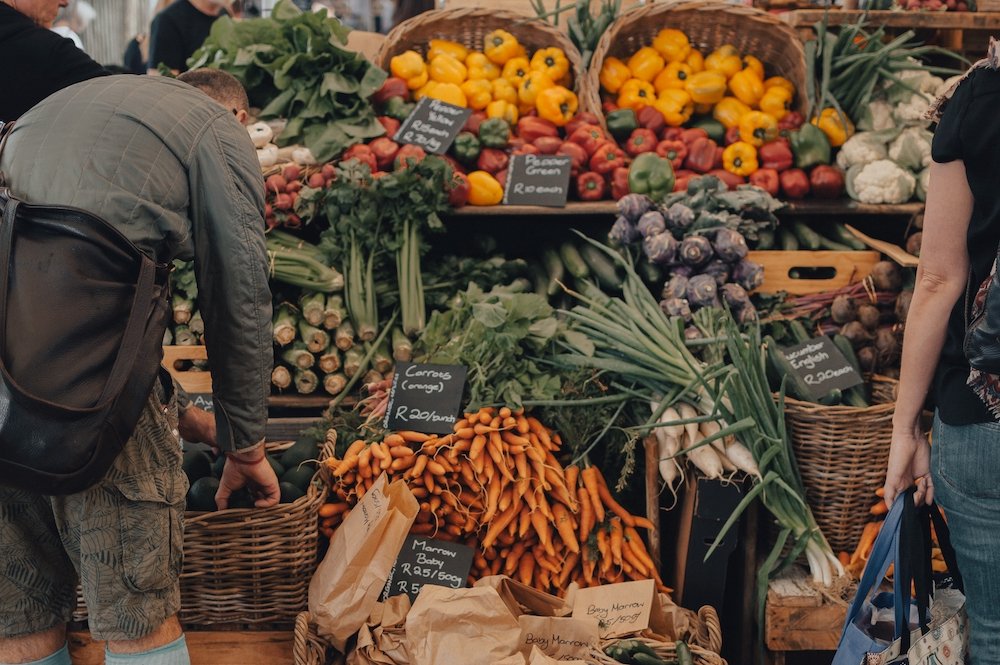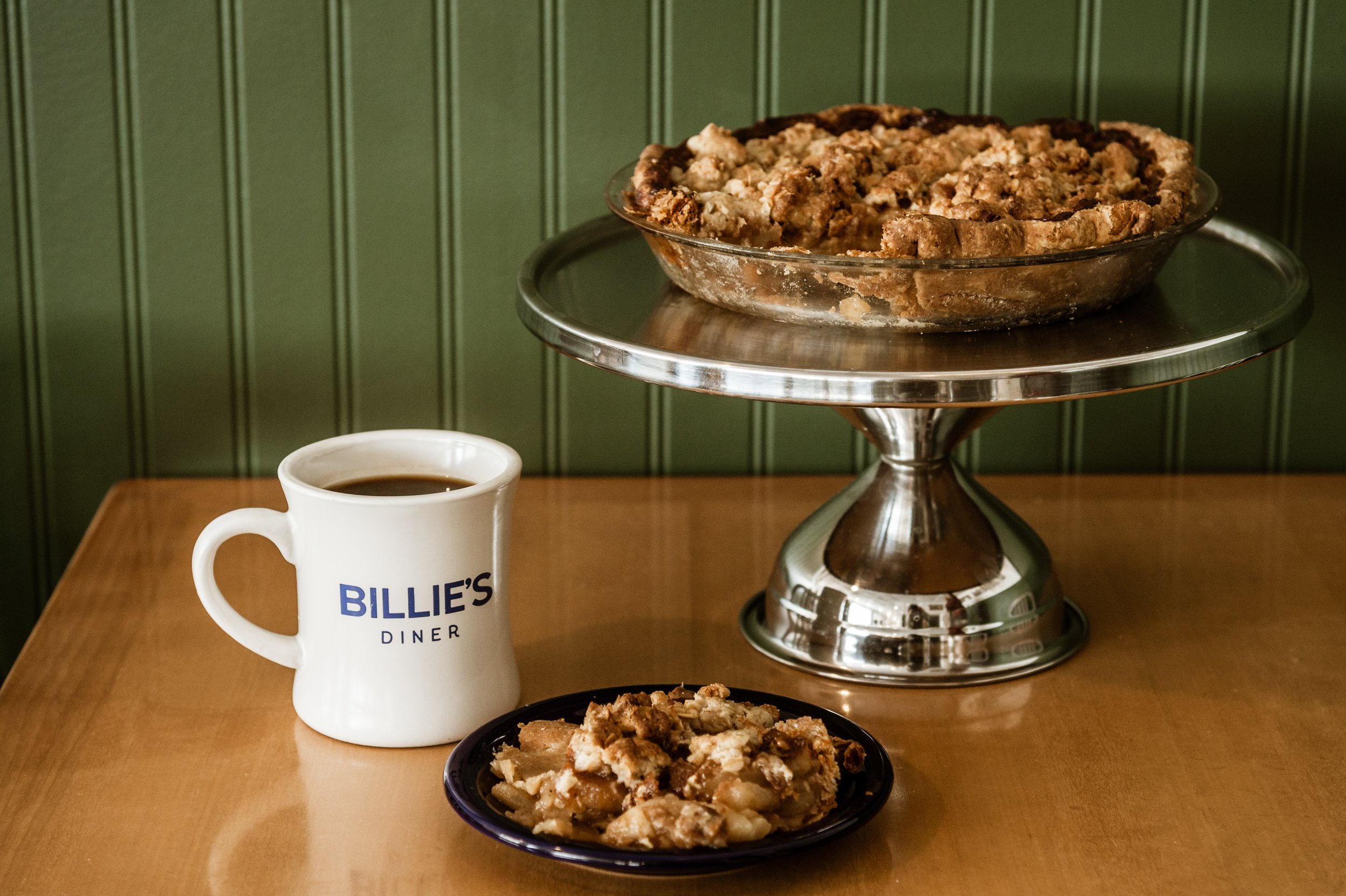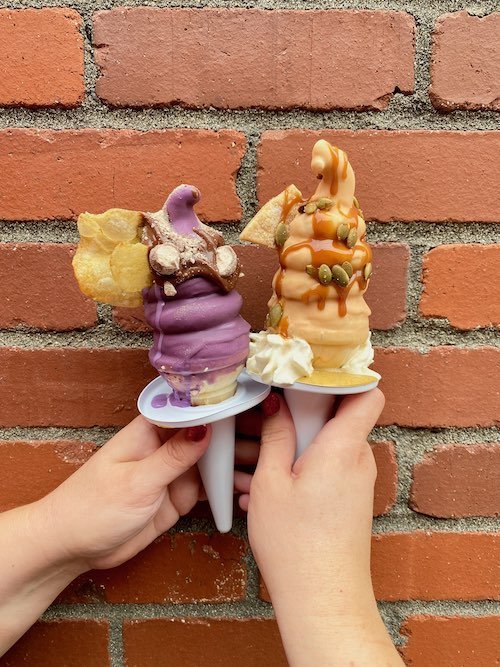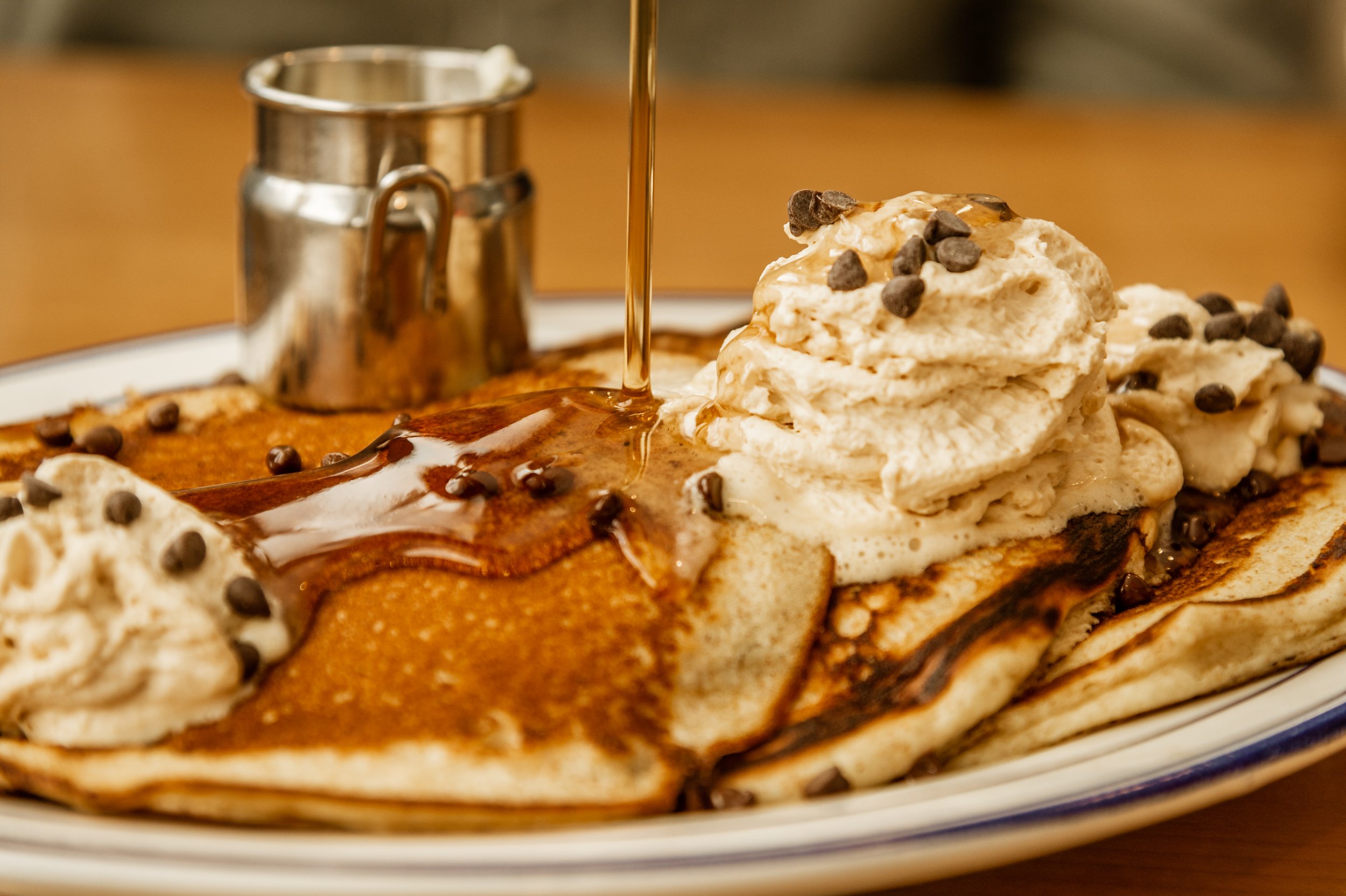Damn Good Coffee is Always on Display at Spokane’s Roast House
(© Ari Nordhagen)
Damn Good Coffee is Always on Display at Spokane’s Roast House
BY ANNISA HALEBefore starting Roast House over a decade ago, Deb Di Bernardo experienced working in a world of coffee driven by profits. She saw how years of rapid growth in the coffee industry had taken a toll on the environment and on the producers whose lives depend on the crop.
The red neon sign shines through the heat of summer and snow of winter letting passersby know that inside they can find ‘DAMN GOOD COFFEE.’ But while First Avenue Coffee gets plenty of walk-ins, ask any of their regular customers why they make the pilgrimage to Downtown Spokane’s Music City Building and they will tell you it’s because ‘First Ave’ is more than just a coffee shop.
Yes, they serve up the drinks and treats that people have come to expect from a specialty coffee shop, but First Avenue is just one way that Deborah Di Bernardo, whose Roast House brand turned 12 in January, is out to change the world.
Before starting Roast House over a decade ago, Di Bernardo, or just “Deb” as customers know her, experienced working in a world of coffee driven by profits. She saw how years of rapid growth in the coffee industry had taken a toll on the environment and on the producers whose lives depend on the crop.
Most consumers and baristas are unaware of the plights and politics farmers face when producing coffee. Deb cites that unethical trade and unsustainable farming practices are projected to eliminate 50% of the world’s coffee supply in the next 20 years. When the model demands that beans travel thousands of miles from a farm before being served to consumers in a paper cup, being conscious about sustainable practices is a crucial part of any contemporary coffee business.
Many cafe owners are taking the initiative to reduce their carbon footprints. Some offer discounts for those who bring their own reusable cups, and Starbucks recently announced that it will push customers toward alternative milks like almond- and oat-milks in an attempt to cut down on the greenhouse gas emissions resulting from dairy production.
Roast House Origins
After eight years in a business that she felt valued volume over people and product, Deb and her co-worker Dave Rier set out to start their own operation grounded in sustainable practices and educating consumers about coffee — where it comes from and the people who grow it.
But Deb didn’t decide to just ride the third-wave coffee movement due to customer demand. Instead, she built a coffee business based in sustainable practices and demanded that customers take note. Di Bernardo is involved in every step of the coffee supply chain, from farmer all the way to consumer.
The process of buying coffee beans can be tricky to navigate, but Roast House is committed to Fair Trade practices and building lasting relationships with coffee producers spanning the globe including women-owned farms in Guatemala and Sumatra. These beans come with a premium price, often 50% more expensive than conventionally farmed coffee.
But that hit to the bottom line is worth it to Roast House because Deb believes it’s the right thing to do. It’s not just about the money for Deb, who is happy to give away coffee to community organizations in order to educate consumers and share the Roast House mission.
In addition to serving coffee out of First Ave and the business’s roastery and tasting room hidden in Spokane’s Logan neighborhood, Roast House boasts a stable of local businesses that serve up brewed beans for their customers. Local chef and restaurateur Adam Hegsted has been a supporter of Roast House since the early days and continues to serve up their coffee to customers at his restaurants including The Yards Bruncheon and First Ave’s neighboring Gilded Unicorn.
Roast House also supplies bags of beans to local grocers, including Main Market Co-Op, My Fresh Basket and Huckleberries. The team takes on-site inventory each week to guarantee that customers purchasing these beans for home consumption receive the freshest product possible.
Meet the Team
Crucial to this process is green buyer and head coffee roaster Aaron Jordan. Aaron’s coffee journey began on a three-pound roaster in his dorm room at Chicago’s Moody Bible Institute. After a year of surreptitiously roasting and selling beans to his classmates, Aaron’s passion and business had outgrown his dorm room and the patience of some of his neighbors.
At the time, Aaron’s girlfriend Allison was enrolled at Moody’s now shuttered Spokane campus, located only a few blocks away from Roast House’s HQ. She encouraged Jordan to make the move to the Inland Northwest and ask Deb for a job. Deb was initially wary of the baby-faced roaster, but she soon recognized Jordan’s coffee chops and gave him the job.
In a business notorious for turnover, Aaron has been at Deb’s side for eight years, but he’s not the only tenured member of the Roast House family. In fact, Allison has served as the wholesale director for Roast House for over six years, and she and Aaron are now married. By providing opportunities for growth and learning into the company culture, Roast House’s employees are well-versed in all aspects of the business.
Deb’s joy for life is infectious. At the Roast House anniversary party in January of 2020, the New York native juggled socializing with frying up fresh malassadas, offering up a donut to each guest, and giving a smile to go along with their cup of coffee. It is this personal touch that sets Roast House apart. “She has one of the biggest hearts I’ve ever witnessed and centers her business around what is the right thing to do, and that’s really inspiring,” says Aaron.
Roast House doesn’t limit its mission to educate people about coffee just to consumers. Deb and Aaron frequently host classes and field trips for local college and high school students who can appreciate the lessons to be learned about sustainability, the environment and equitable business practices, whether or not they partake in a cup of joe. For those who are more focused on the end product, Roast House also holds cupping courses for tasting different varieties of coffee and invites in cafe owners from all over to sample their product and practice on their equipment.
Committed to Doing Good Locally and Abroad
Roast House’s commitment to sustainability has garnered them praise and awards over the years, highlighted by a 2014 Good Food Award, which recognized Di Bernardo and the team not just for a stellar Guatemalan roast but for their ethical and environmental practices as well. In recent years, Deb and Roast House have partnered with World Coffee Research, a Portland-based NGO operating in over 28 countries to connect coffee producers and professionals with scientists to improve the triple bottom line in the industry: environment, economics and equity.
Last year, Deb traveled to Rwanda with other coffee professionals for the “Let’s Talk Coffee” conference. She met with growers, many of them women, and saw firsthand how groups like World Coffee Research are working to protect the local environment and make the industry more sustainable.
“There’s nothing more important than our environment,” says Di Bernardo. “We live in a world where things are disappearing every day. Pretty soon kids won’t know what real chocolate tastes like because it will all be synthetic. It’s sad, and we have to do something to about it.”
At the end of the day, Deb and the Roast House team know that not all of their customers will take time to consider the origin or environmental impact of their coffee. For some patrons, it’s just about sitting back and enjoying a latte perfectly crafted by Kristen Scott-Silver, who oversees operations over at First Ave. But Deb is committed to her mission of changing the world and protect it for future generations, not for profit or praise, but because it’s the right thing to do.
“Sustainability has been defined in a million and one ways,” says Aaron Jordan. “Roast House’s vision since the beginning has been to create a business model in the specialty coffee industry that is 100% committed to making value-based decisions that take into consideration how this business and this crop can be protected for future generations.”
After 10 years, ask anyone at Roast House about their goals for the next decade and beyond and you’ll get the same answer:
“To change the world, of course.”
About Roast House
ROAST HOUSE COFFEE
roasthousecoffee.com
509.995.6500
423 E Cleveland Ave
Spokane, WA 99207About First Avenue Coffee
FIRST AVENUE COFFEE
firstavenuecoffee.com
509.863.9442
1011 W First Ave
Spokane, WA 99201




